What are the Best Survival Skills to Learn?
This should be an easy question for any survivalist to answer, and a question that all outdoor enthusiasts should be interested in.
As you continue to read, I want you to appreciate the importance of knowing these skills, and of carrying the very basic tools and things, you will need, in your backpack. I want you to understand how things will turnout for you, if you are inexperienced and ill-equipped.
I will begin with my list of the most important skills required for all environments, and then I will describe how some skills are more important than others, on your first night alone in the wilderness.
If you are Experienced and Well Equipped

If you are experienced and well equipped, spending a night in the wild is a rewarding and satisfying event. That is the primary reason you are there. I have spent many nights alone in the bush, so I know exactly how I am going to go about doing this.
I do not recommend hitting the bush alone to anyone, especially if you are inexperienced.
First of all, I am prepared mentally for the experience, and secondly, I am properly equipped to do so. Further along, I will provide you with links on how to equip yourself for this event.
My number 1 skill, the number one priority, that you must have to survive your first night, is your Attitude. You must have a … burning desire to live.
If you are Inexperienced and Poorly equipped
There is no intelligent reason for you to be in the wilderness alone, or with similarly inexperienced friends or acquaintances, if you are not properly equipped. This is the worst case scenario.
You have no skills, no experience, AND … you don’t know where you are. That’s why you are lost!
Sounds more than a little bit crazy, but every year thousands of people leave the comfort of their homes, and vehicles, to spend the day, hiking along a river, across a plain, or up a mountain.
Many don’t make it back. The statistics confirm what I am telling you. This is the purpose of my message for you.
Inexperienced and poorly equipped “fun seekers” often end up in trouble, and find it very hard to extract themselves from these situations.
The Best Skills to Learn
These are the best skills for you to learn, and in their order of importance.
1. Attitude, … A Clear, Focused Mind, and the Will to Live
Most people have never spent a night ALONE in the wilderness, and their first night alone, is often the first time they get lost.
The first time you are lost, on a cold, dark, rainy night in a forest, may be your last time.
This is not a pleasant thought to consider, but this is the real world, no BS stories will be accepted here.
This is why I consider “attitude and the will to live”, as the most important skill to survive your first night. If you can survive your first night, you may just make it out alive.
Am I trying to scare you? Not really, … I’ll leave that to Stephen King or Alfred Hitchcock.
I want you to realize the gravity of this situation, so that hopefully it does not happen to you, but if it does happen to you, you will know how to get through that first night.
It will be worst than anything you can imagine, sitting in front of your computer screen, especially if you are ill-prepared.
Remember that your attitude is number 1, and that the next thing, number 2, is to build yourself a shelter.
A few tips
- inexperienced, sit down and think for a moment, you must remain calm
- experienced and equipped, take a break, have a drink and get ready to spend the night
2. Shelter, … How to Build Yourself a Shelter
If no one is hurt, or in need of medical assistance, your first concern is to build yourself a shelter.
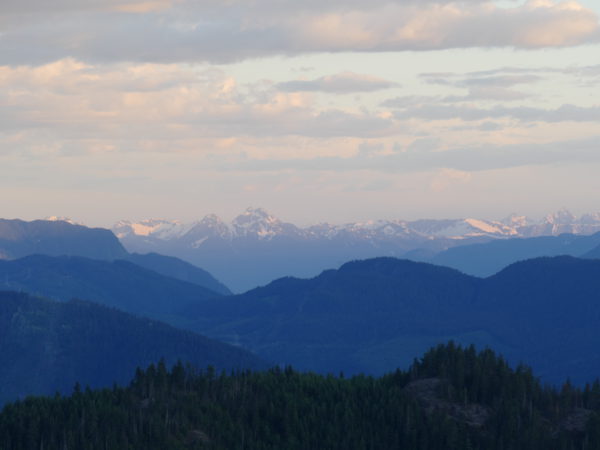
My playground is the wilds of British Columbia, Canada. To be more specific, the Coastal Mountains and the Interior Plateau. I also visit the Boreal Region quite regularly.
Everyone who lives in this part of the world, knows why the trees grow big and tall. RAIN, and lots of it. I would like to add that there many warm, sunny days that easily convince us that this is one of the most beautiful places on Earth.
When the sun has slipped down below the mountain ridge you are staring at, it gets cold and dark very quickly. If you have brought a headlamp with fully charged batteries, light won’t be an issue.
At some point, you will realize that you are lost, or too far from your vehicle to get there, safely. Do not Panic! Sit down and assess your situation. How are YOU going to make it through the night?

I want to emphasise the importance of having a quality headlamp with extra batteries. A quality headlamp will light-up your path, and you may be able to safely make your way to your vehicle, if you know how to get there.
A few tips
- inexperienced, carry an emergency shelter, they are lightweight and just what you’ll need to maintain proper core-temperature. they are easy to slip into, and many have reflective surfaces for heat retention. get one that is Orange in color, it can also be used as a signalling device in the daytime
- experienced, carry the above, a tarp and paracord. you’ve done this many times before, so get a good night’s sleep so you can enjoy your stay in the outdoors
Rope is a must carry.
I use to carry any type of rope that I had hanging around, but these days I carry TOUGH-GRID 750 lb paracord. Why? Simple.
It is made to meet or exceed the U.S. Military’s Mil-C-5040H specifications, and it breaks down into 13 strands that have many uses.
3. Fire, … How to Build a Fire
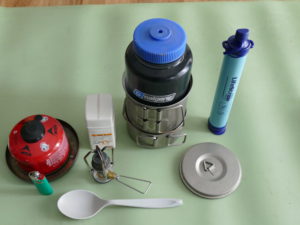
Fire will warm your body, boil your water, and cook your food.
In addition to this, fire will provide a positive and refreshing psychological boost, and bring a good feeling to your night in the wild. It can also deter predators, such as bears, cougars, and wolves.
They live in the mountains, along the rivers, and in the valleys as well.
I have never been attacked by any of these denizens of the wild, but I have had a few close calls. Sitting by a fire with the flames dancing up into the sky is something that everyone should experience in their lifetime.
When you spend your first night alone, you will hear many noises and sounds, that will play tricks on your mind.
You will not know who or what is making theses sounds, or where they are coming from.
Time and experience will enable you to identify these noises, and alleviate your fear of them.
A few tips
- inexperienced, carry “firestarter sticks”, they only are 6 ounces in weight, then add a Bic Lighter and a ferrocerium rod to complete you kit
- experienced, carry the same, you know that fire is your friend
4. Water, … How to Find Safe Drinking Water
If you are carrying a water bottle in your backpack, you’ve got this one covered. Do not run around the landscape in the dark looking for water. This is best left for tomorrow when it gets light.
I always carry a LifeStraw Personal Water Filter. It weighs only 2 ounces, and solves your water issues.
Add to this, a small pot or an army canteen cup, to boil water and make a drink.
Add a few packages of instant coffee, tea, hot chocolate, or dehydrated meals in a pouch. Weighs less than a pound, and the psychological boost will be much greater than its food value.
Investing in a small pocket stove is an excellent idea. Light in weight, you can get a hot drink to warm your hands and body much quicker than with your fire, especially if it is raining hard, and you have very little experience building fires, in the dark, on the side of a windblown mountain.
Drinking a warm drink by the fire, near your shelter increases the odds in your favor, by a factor of 50.
5. First Aid, … How to Treat Injuries
When no one is hurt, First Aid is not an issue.
Take the time to enjoy Nature, stopping often to look at things, and being in the right frame of mind, is a safer way to travel.
Everyone should consider taking a First Aid course.
This knowledge is easy to carry with you. It weighs nothing!. You’ll be surprised at how much you can learn, and remember in a 1-day course.
Is your safety and well-being worth a few dollars and one of your precious Saturdays?
You may even be able to use it to assist a family member or friend.
6. Dangerous Situations and Predators
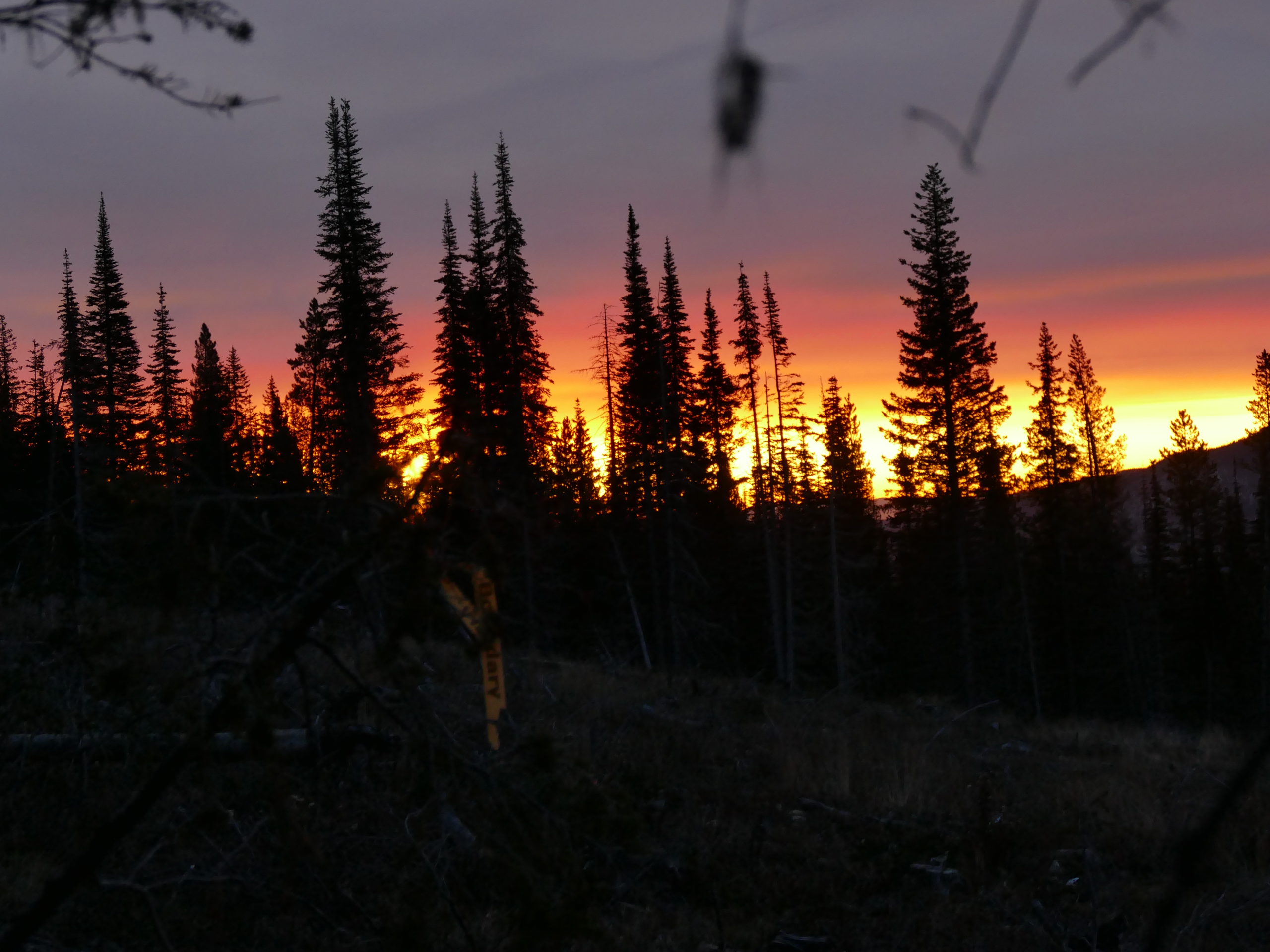
Be aware of your surroundings. Unless you have spotted a bear, a mountain lion, or wolves, following you, this danger may only be a figment of your imagination. Your fire can help you here as well.
A few tips
- do not set up camp too close to a creek or river, … flash flooding
- do not set up camp near a cliff, … falling rocks
- in the forest, beware of “widow-makers”, … these are branches or trees that can fall on you from above, and cause serious damage to you or to someone in your party
7. How to Signal for Your Rescue
Save this for tomorrow, after you have had a good night’s sleep.
A large ORANGE garbage bag, your ORANGE Emergency Shelter, a whistle, and a signalling mirror, add less than a pound to your pack.
All of these are excellent additions to have in your backpack, and they are lightweight, and practical tools for signalling your presence to a rescue team.
8. Navigation, … How to Find Your Way Back Home
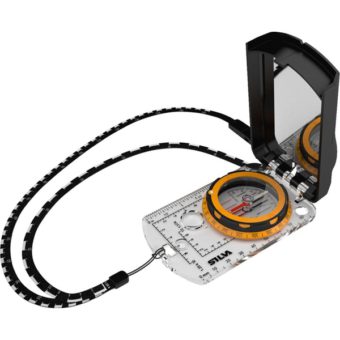
A map and compass. How many times do I have to say it!
If you have a map and compass, finding your way back home, or to your vehicle is going to be a lot easier than if you don’t.
Have you told anyone where you are going? If not, … why not?
9. Food, … How to Find Food
Your first night alone will be more pleasant, if you have some snacks to nibble on through the night.
If not, no big deal, you can survive for weeks without food, don’t worry about your stomach, and focus on the first 5 items only, … for the first night, … and you will make it through to the morning.
Besides, you may be a few pounds overweight and the experience may help you value what you place in your gut.
To Sum it all Up
Attitude, … Shelter, … Fire, … Water, … and … First Aid.
These are the 5 most important skills that you must know and manage, to get through your first night.
Nature doesn’t care about your feelings! Give your head a shake, and be aware that someone is expecting you home soon.
Hopefully, you’ve told someone where you were going.
Rewilding is serious business. If you do it properly, it is one of life’s inexpensive pleasures.
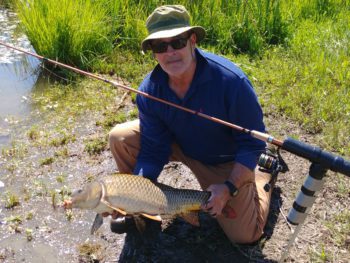
An opportunity to enjoy all that Nature has to offer. It can open you to numerous activities such as photography, fishing, backpacking, gold-panning, and botany.
The list is too numerous to mention. Perhaps you have your own fields of endeavor.
Do not hesitate to Contact Me with your questions and concerns
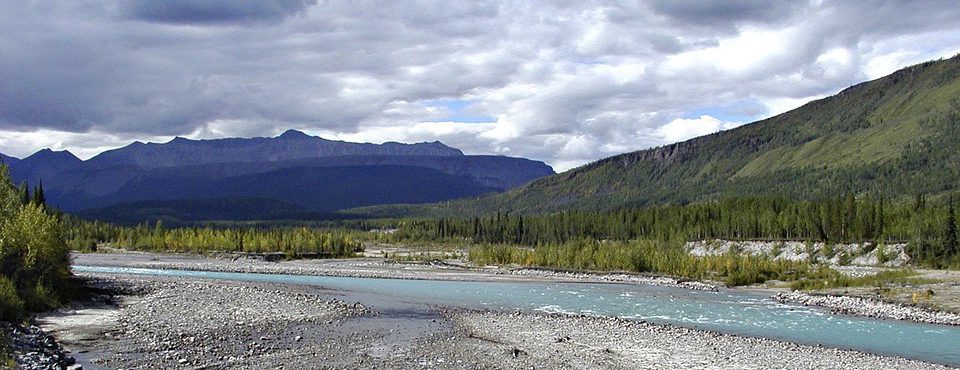
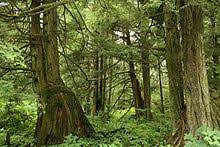
The right attitude is a must! Surviving in the wild would never be easy without intelligence and creativity (both of them get blocked if the right attitude is not on place). Sheltering may have more or less requirements depending on the risks associated with the area you’ll be staying.
Potable water is much more needed than food. Without food you can survive for several days, without water, you’d be lucky if you get up to the second day.
Have you ever been lost with a map? It sound ridiculous, but having a map is nothing if you don’t know how to identify your current position on it. Compas and related training on it’s usage may be of great benefit.
Thanks for a great list of requirements for wild surviving.
Attitude and shelter are very important, Juan, but I have to agree with you, that water is always very high on the list.
Depending on where you’re at, you cannot live without water for very long, at the most about 3 days. In desert conditions this is a lot less than 3 days. If you don’t know how to stay cool, you may not even get past the first day without water.
I have never gotten lost with a map but I can understand how this happens. There are many reasons how this can happen, and sometimes it’s from not taking the “declination values” into account.
Thanks for reading my post,
Paul.
As a camping lover, I must say this one is a great guide for survival skills you may need to learn for your adventure trips. In fact, each and every point is very crucial as discussed here.
The attitude, most of the bloggers miss out this point when describing the facts, but this one is one of the most important things everybody should learn for an adventure trip. The fear may not make you a successful adventure traveler.
I rarely faced a rainy session in my entire camping experience, and never faced heavy rain even when I head for a camping trip at the world’s wettest place, Cherrapunji. Can you please teach me how to survive in a heavily rainy season? This may be very helpful to me for my future adventure.
Heavy rains require well constructed shelters.
I always carry a tarp, or piece of heavy plastic to construct an emergency shelter. The size of your group determines the size of your tarp or “piece of heavy plastic”.
A piece 3 meters x 3 meters, is sufficient for 1 person, but a piece 6 meters x 6 meters, can protect a larger group.
Simply tie a piece of rope to 2 trees and throw the plastic over it. Position it evenly and tie the 4 corners down. This works best in a sheltered area. There are also many ways to construct natural shelters depending on the local vegetation.
Books can provide many useful suggestions to help you as well.
Thanks for this great question.
Paul
What an excellent guide to the best survival skills to learn for the times when you may decide to have an adventure in the wilds. A lot of people do take such trips, many inexperienced in the ways of the wilds, so an article full of sage advice like this is very helpful.
That old saying you don’t know what you don’t know holds true for these people when they run into problems while out having fun in the woods among nature. They will be confronted quickly with what they don’t know and wish they did know. I was raised in an area where woods, lakes, and nature were all around us.
The tips and advice you have offered covering attitude, shelter, fire, water, first aid will help save lives for those that take the time to read it and take action to make sure they are prepared as much as possible for the unexpected. I really enjoyed the post and even took some notes for myself. The equipment these days is getting lighter and more useful, so I need to update my supplies! Thanks!
Thanks for the kind words, Dave.
Learning is never a bad thing, and things are often easier learn before we get into trouble.
Books are also an excellent source of information.
From there, many of these skills can be practiced at home or close by.
Paul
hi, good idea to advice not trying survival in the bush don’t knowing what you’re doing. It gets extremely cold at night, nature is pretty unforgiving. The insects are insane, And not to mention in wild animals that want to eat you. There is a lot that goes into survival, and knowing what you’re doing will be very helpful. Without equipment to you are a big trouble.
Survival skills are just like everything else in life.
They take time to acquire and master, but they are only necessary if you play in that arena. At this time in my life, I don’t play football or play the guitar.
Going into the bush alone and unequipped is simply not wise. When you are away from civilization, there is no one there to support you, or that you can call, or google, when things go awry.
This is the message that I try to promote to the ones who blindly walk into this danger.
Thanks for the comments, Jake.
Paul.
At some point, it becomes essential to pickup a few of these survival skills. You never know when you’re going to need them so it is important to learn them and to also get equipped for any journey into the wild or mountain regions.
But I have to admit, this has raised my curiosity level a bit. You can agree that the skills in question are neither cheaply nor easily acquired, so can you recommend any particular training that covers the basic of these survival skills?
Depending on where you live, Iyke, these skills can all be learned for little or no money.
Many areas have “outdoor clubs” that go camping and hiking, and participate in other such outdoor activities.
I’m sure that these members would be happy to teach you some of their skills.
Even the Red Cross has First Aid courses that they offer, all around the world, simply contact your local chapter to find out how they do it.
You don’t need to master all these skills if you stay close to home, but they can also be learned from books, and then you can practice them on your own as well.
Paul
Your number 1 skill is awesome. The number one priority, that we must have to survive our first night, is our Attitude. We must have a … burning desire to live. Everyone who lives in this part of the world, knows why the trees grow big and tall. RAIN, and lots of it. Fire will warm your body, boil your water, and cook your food.
Yes this is so true, Parveen,
Thanks for reading my blog and offering your kind words.
Paul
Hi! I have just recently got lost in sand dunes. It was already late and it got dark on us. We were a group of five and all of us were inexperienced and I’ll prepared. Thankfully the group remained quiet and calm. And before midnight, rescuers found us.
After that experience, I’ve been researching what to do in these cases. What would you suggest when two persons feel they should lead? How to agree in these circumstances?
This is an excellent question, Henry.
I’m happy to hear that you remained together, and at the same place, awaiting rescue.
“Real leaders”, sometimes lead by “following”. If I understand your question correctly, …
What is the best way to react to a situation where 2 persons have different ideas on how to get back home safely?
The most important thing is to keep the group together, obviously, but if some group members have 2 different ways of getting out of their predicament, 1 method or direction is better than the other.
Have everybody sit down and think the situation over. This will get some people to sit sit down, and begin a situation assessment.
Afterwards, when you do walk out on your own, or require a rescue to get out, re-visit the event to see who was right or wrong, and why.
A true leader never lets the situation get out of hand.
Sometimes the group may contain 1 or 2 “objecters”, but a properly seasoned leader will not let anyone “walk his troop over a cliff”.
I hope that this sheds some light on your dilemma.
Paul
Hi Paul
I must say I really appreciate your words of wisdom and I couldn’t agree more with them. It is important to feel safe when in the wilderness, where anything unpredictable could happen. There is no point trying to run a marathon when you can barely walk. You will need to be led by the experts, read books and websites like yourself to get comfortable. Once you have progressed and demonstrate some form of knowing, then you can go by yourself, provided you have the expert say so. I believe that you have covered every nook and cranny that most outdoor people will need to master.
As so many survival skills is based on where you find yourself, so that in the cold is a different kettle of fish compared to the hot, so how do you adapt to different situation?
Kind regards
Antonio
You have an excellent perspective on life, Antonio.
I am pleased that you appreciate the importance of the environment you are in.
When you hike and camp in the Boreal Forest, the conditions are very different than if you are hiking and camping in the desert, especially as it relates to water.
Where I play, drinking water is never an issue, I simply carry a 2-ounce LifeStraw, and my problem is solved.
Others that hike and camp in desert conditions must carry their own water and this adds lots of pounds to your backpack.
Shelter from the midday sun is also very important in the dessert. Water is often unavailable, even to the well-trained survivalist.
Knowing where you are going and being well-prepared is important at all times.
Paul
Attitude, … Shelter, … Fire, … Water, … and … First aid. You summarized very well. But first of all, you gave useful tips if you want to spend your time in nature. You also indicated the strictly necessary objects in such an approach. I have no experience but I think if you are prepared properly it is a unique experience. If you repeat it it will be less … scary.
You have read it well, Carmen.
Being prepared is the Boy Scout motto.
Being prepared for anything we do in life, is never a bad idea.
Thanks for dropping by and sharing your views.
Paul
Hello there,thanks for this awesome article it would be of great help to the public as it has been of help to me.i must say that you have done a great job on this article as survival skills are on of the best thing to learn as you don’t know when you might need them.but does this only to the wild?
Hi Dave.
Thanks for the kind words.
Attitude is always important, and this applies to all facts of life.
But as for the others, they are all available when we stay within the bounds of civilization.
Paul
Wow. Thanks a lot for sharing with us such an amazing article about best survival skills.
I always go camping with my friends in different wild areas and i must admit that there i had the amazing experiences ever. As you said that you don’t recommend to us to go alone i must say that even we were a lot of boys we had a lot of survival problems there. The biggest problem is always finding food. Once we needed to abandonn our journey because of the food. You really helped me with this 9 tips of yours and if you don’t mind i will share it on my social media accounts.
Wish you all the best and a happy new year.
Thanks, Nimrodngy.
Keep this list to prepare for your next adventure.
Knowing that food was an issue on your last trip, here is a suggestion to help you.
Calculate the number of meals and snacks per person, per day.
Heavy backpacking trips often need up to 2 pounds, 1 kilogram, of weight per person, per day. This of course, depends on the person and the activity. If you are the best candidate for this job, do the preparations, but get your other party members to share the load, … and the costs.
Now you can focus more on the Natural beauty around you.
Bring food that you normally eat at home. Eat the heaviest things early in the trip. Eat fresh fruit early as well, so it doesn’t spoil or get damaged.
Paul
Hello, I really want to first appreciate your effort in putting this great website together and writing this article. I learnt how to make shelter on my own at an early age and making of fire with stones came next. I am really impressed with the survival skills you have outlined here. It will be of great help to others just like me. Thanks
Thanks, Benny.
Knowing the basics is always a good thing.
The proper mindset and how to build a shelter, and how to build a fire, are always at the top of any survival skill list.
Paul
Wow?! This is a big thumbs up from me because I must confess that I found every bit of this to be worth a read. The survival skills can prove to be important in the face of death. For a person that loves engaging in very stressful and tasking tasks, this is essential for me. Thanks so much for sharing
Thanks for reading my post, Rodarrick.
I’m pleased that you appreciate the value of having real-life survival skills.
There are many people out there that push the notion that wilderness survival is “a piece of cake”, if you have these special tools and gadgets that they advertise and promote.
Don’t get me wrong, I’m not against any type of useful gadget that you may want to purchase and carry. As a matter of fact, I am a big supporter of marketing and free enterprise, but most of this stuff that is offered and promoted sometimes, is of no use to you in real life situations.
This is why it’s always a good idea to learn the basics first.
Survival is about surviving!
This is when the “Shit has Hit the Fan”.
All survival situations are different and similar at the same time. Different weather patterns and different seasons all affect how you must approach your activity.
If you’re out for a walk around the lake, and 10 minutes from your car, a sudden downpour, or having no drinking water, is not a big deal, but out in the desert, or on the side of a mountain, it becomes a big deal, very quickly.
Happy Trails!
Paul
Thanks for the really useful tips on survival skills. These are all really essential for anyone who wants to go camping and the like. Just this past summer, a boy in our community was in a camp that went on a long hike one day. He got lost, 3 days later they found him. They say the only reason he survived is that he knew all of these survival skills!
Absolutely, Hollie.
Knowing the basic skills and using them, is an excellent strategy to get you back home.
Paul
Hello Paul, I love what I have seen here and so many benefits less in this post and need to be understood. Survival, when lost, is one thing that is crucial and should be well mastered. First aid and building and building a fire are two things that see great importance in learning. I would love to put my kids to a test making use of this post to see how ell they can survive on their own. Thank you.
This is an excellent idea, Benson, but you should accompany them.
This is a great way to share quality time with your kids.
I would love to hear from you, on how things went, what worked, and what didn’t.
See you soon.
Paul
Hey thank you for the awesome post! These are some wonderful pointers, and I’m glad you broke some of them down based off whether the person is experienced or not. I was wondering if you would mention the Lifestraw for the water, as I have heard some amazing things about the Lifestraw and have yet to buy one, but I will eventually! Do you have any advice if someone notices any wild animals that may be following them? Especially something like a bear?
Hi Jessie.
When wild animals are stalking you, this is serious business.
Most predators in Nature want to avoid humans, if however, they are sick or hungry, they sometimes choose to follow you. This has to be monitored constantly in the wild.
Making noises, wearing “bear bells”, and being in a group, are all helpful. At night, a fire will keep them away.
Hence, the importance of knowing how to build and use fire to your advantage in the wilderness, and not travelling alone, especially when you are not prepared.
Paul